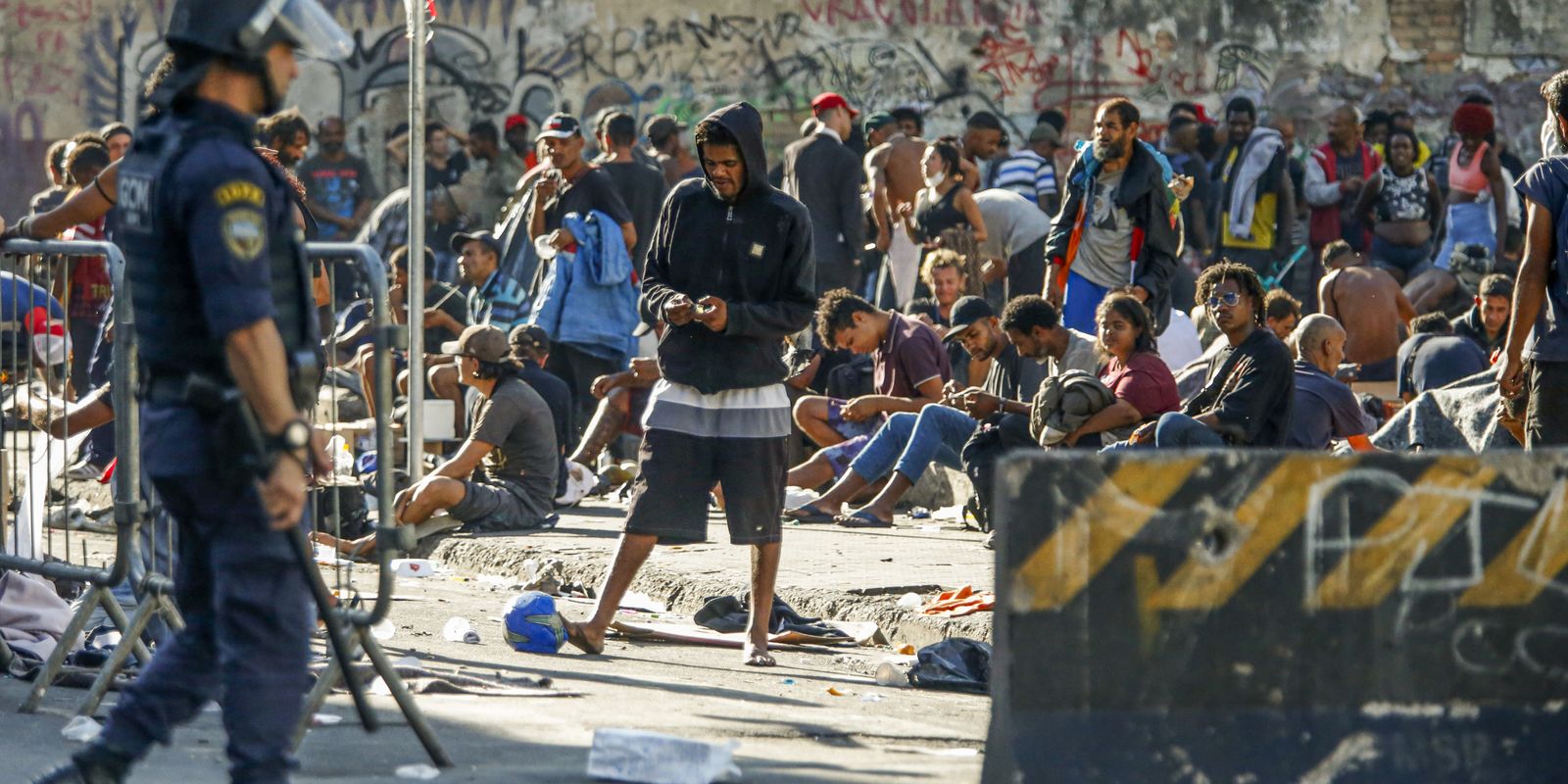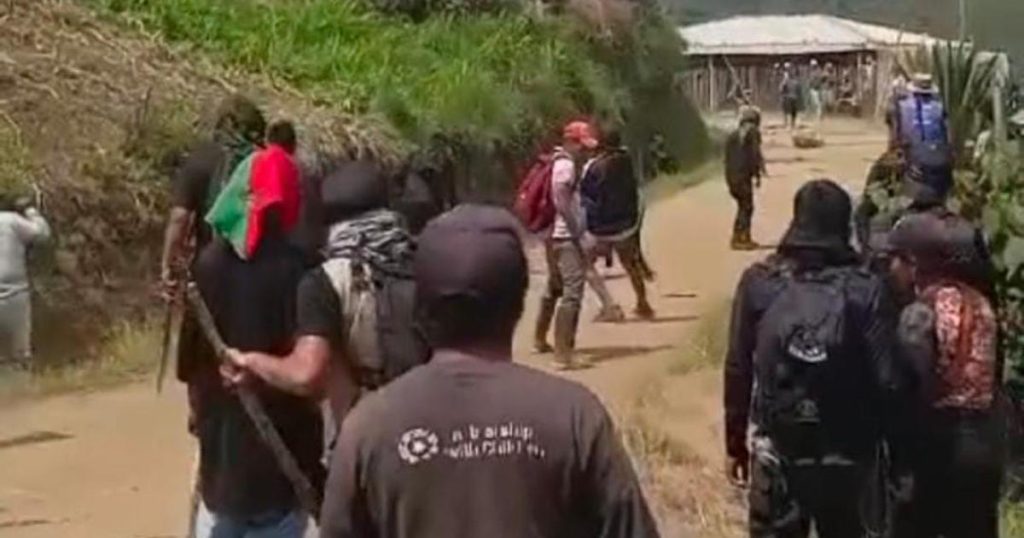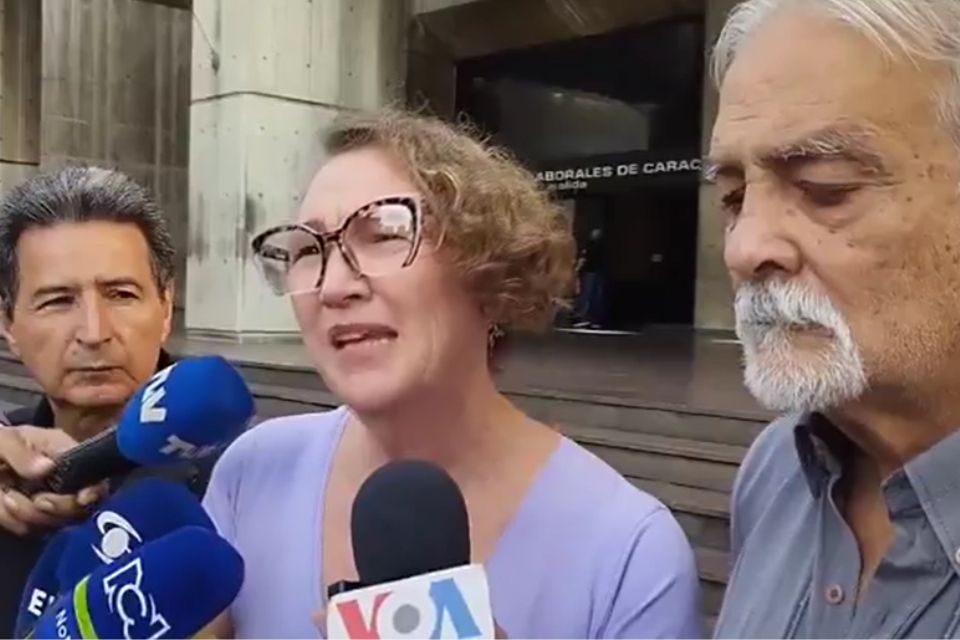Systematic repression and violence in open scenes of drug use, in the center of the capital of São Paulo, leads to the dispersion of people so as not to be victims of violence, but they continue to use substances in other public spaces in the city. The assessment is by anthropologist Amanda Amparo, researcher in Social Anthropology at the University of São Paulo (USP).
The city of São Paulo announced that there was a reduction in the flow of people on Rua dos Protestantes, in Cracolândia, a place that once brought together the main concentration of people in situations of social unprotection in the city center. Between January and December 2024, the average number of people on site fell by 73.14%, according to the note.
During the period, the city council estimates that actions in the region resulted in 18,714 referrals to municipal services and equipment. According to the survey, during the period, 679 people achieved financial autonomy, 308 gained housing autonomy and 261 rebuilt family ties. The Operation Work Redemption Program registered 1,802 participants.
Amanda Amparo, a specialist in analyzing the situation in Cracolândia, agrees that the number of people in the region has fallen, which does not mean that the territory, as a whole, has seen this reduction.
“The concentration of people there, due to the rate of repression and systematic human rights violations against people, has obviously meant that they no longer stay in the same place”, he explained, adding that many leave during the day, but return to night.
The anthropologist says attacks against users are frequent and that in the grid closure system, “people were left there as if they were in a zoo”.
According to the city hall, police operations in the area were expanded and the number of arrests and seizures increased from 5,455 to 6,074 in the period from January to September 2024.
Playpen and cleaning
A member of Craco Resiste, anthropologist Roberta Costa assesses that the city hall’s survey is a “reflection of the daily torture” experienced by those who have no choice and the total lack of structure in society for people in vulnerable situations.
“The Public Power’s policy certainly spreads people across the city. There is no doubt that the homeless population in the city of São Paulo has increased. The living conditions of the population as a whole worsened. This leads many people to the streets and this policy of violating people who have already been violated so much throughout their lives does not help them”, he pointed out.
She also criticizes the cleaning carried out by the city hall on a daily basis. The municipality’s Executive Secretariat for Strategic Projects reported that two cleaning actions are carried out daily on Rua dos Protestantes and that momentary movements, close to these times, are monitored by security forces.
“In Cracolândia, regardless of operation [policial]Every day, morning and afternoon, there is cleaning. What is cleaning? It is the institutionalization of the humiliation of people who are already socially unprotected and have a lot of problems, who should be taken care of”, reported Roberta Costa.
She says that, at the time of cleaning, all people are removed from the place and forced to return to the playpen by the Metropolitan Civil Guard (GCM).
“In fact, several users report that this is the moment of greatest violence, when they tear money from them, take cigarettes, and undergo various physical and psychological torture. At 3pm, they clean again,” he said.
According to Amanda Amparo, the greater circulation of people does not mean “that the city hall was able to have a positive impact on these people’s lives to the point that they were able to reorganize themselves.”
Roads such as Avenida Duque de Caxias, Rua dos Gusmões, Rua Helvétia, Rua Barão de Piratininga and Avenida São João have been places where people who abuse drugs gather. “When we also look at the large center, the Republic already has a much larger usage scene than it had before,” he said.
Considering the model of public policies implemented in the region, Amanda Amparo highlights that the dynamic of seeking to remain concentrated, even in other parts of the city, is also a form of protection. “The mechanism of spreading people, of making them circulate without stopping, has led to several scenes of concentration of problematic drug use. So, there are several scenes, it’s not just one anymore.”
The dispersion resulting from repression actions in the region, explains Roberta Costa, even creates greater difficulties in caring for people in vulnerable situations. “The problem with spreading these people around is that, to take care of them, we need a bond, we need to know who they are. We have years of history of exchange and care for the people who are in the flow of Cracolândia. The Public Power, which does not help provide care, still does the disfavor of violating and spreading people”, he lamented.
THE Brazil Agency contacted the city of São Paulo to comment on the issue, but has not received a response to date. The space remains open.















